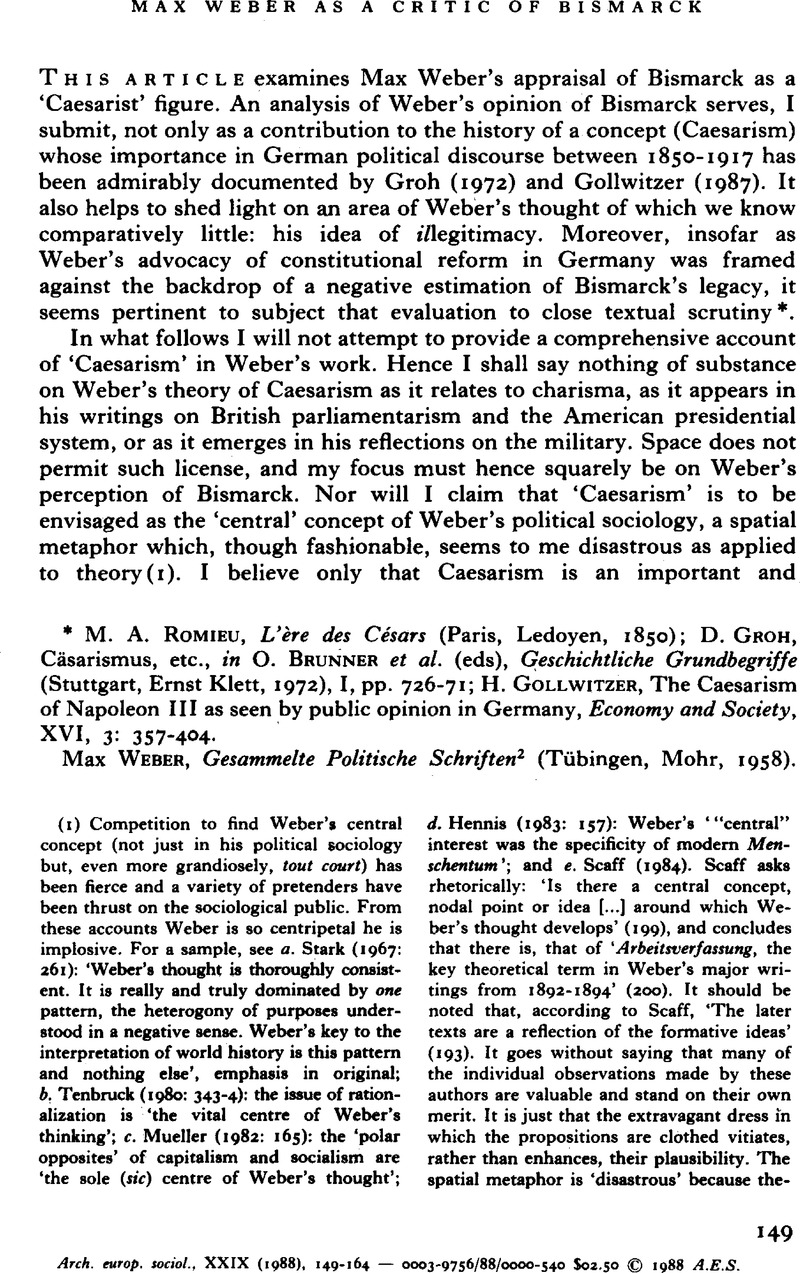Crossref Citations
This article has been cited by the following publications. This list is generated based on data provided by Crossref.
Baehr, Peter
1989.
Weber and Weimar: The ‘Reich President’ Proposals.
Politics,
Vol. 9,
Issue. 1,
p.
20.
Sell, Carlos Eduardo
2010.
Max Weber: democracia parlamentar ou plebiscitária?.
Revista de Sociologia e Política,
Vol. 18,
Issue. 37,
p.
137.
Sbailò, Ciro
2021.
Deutschland zwischen europäischer Integration und Souveränismus – La Germania tra integrazione europea e sovranismo.
p.
243.
Anderson, Elisabeth
2024.
Habitus and personality in the work of Max Weber.
Journal of Classical Sociology,
Vol. 24,
Issue. 1,
p.
19.
Hoekstra, Hanneke
2024.
Vocation as tragedy: Love and knowledge in the lives of the Mills, the Webers, and the Russells.
Endeavour,
Vol. 48,
Issue. 1,
p.
100918.





